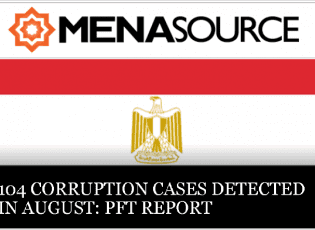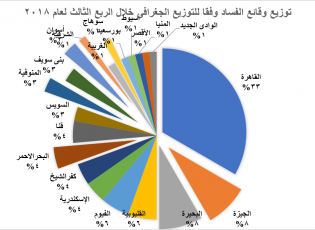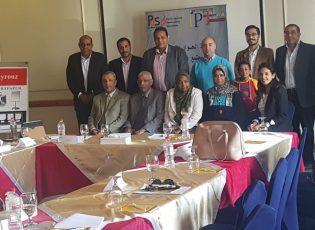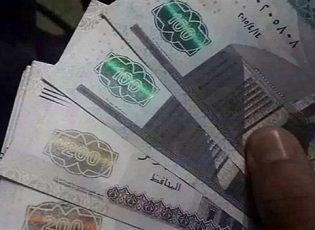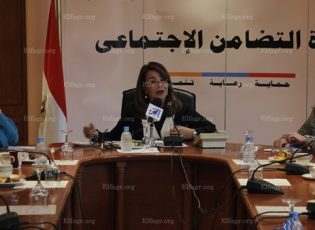alternative
Sami Saeed 6:11:27 PM Saturday, December 24, 2016
Corruption is one of the most important obstacles that hinder progress, and in Egypt there are many aspects of corruption and places of its spread as it penetrates into most sectors, bodies and ministries, and with the approaching end of the year, Al-Badil monitored the cases of corruption that occurred during 2016, which approached 1100 cases that occurred in government agencies and sectors, It cost the state treasury about 50 billion pounds.
The Ministry of Supply came at the top of this list with the lion’s share, as about 400 cases of corruption were announced in the ministry during the year, as confirmed by some civil society organizations, specialized in monitoring corruption incidents that were investigated by the regulatory agencies, among them “Partners for Transparency” .
The incidents of supply corruption, including the era of the former minister Khaled Hanafi, and the current minister, Major General Ali Meslehi, including what was revealed by the regulatory and security agencies of the involvement of 38 officials in the manipulation of wheat supplies and the corruption of silos, which were estimated at about 5.4 billion pounds.
The ministries of health, agriculture and local development ranked second in terms of the number of corruption incidents, and with regard to geographical distribution, Cairo governorate still occupies the largest share of corruption incidents during 2016 due to the concentration of administrative headquarters therein, and 440 corruption incidents were witnessed, followed by Giza governorate with 230 incidents, then Sharqia and Qena, with 60 incidents of corruption each, while the remaining 400 cases were distributed to the rest of the governorates of the Republic.
On the other hand, the months of February and October were the two months of the most cases of corruption, as more than 250 cases were monitored in these two months only, and regarding the judicial position, the incidents "under investigation" came first among corruption incidents during 2016, with a ratio of 76% out of the total. 1100 incidents, followed by the "pending trial" facts with a ratio of 14%, then the incidents that were not investigated by 9%, and finally the incidents that were judged came in the last place with a percentage of 1% of the total cases.
Dr. Walaa Gad Al-Karim, Director General of Partners for Transparency, told Al-Badeel that the International Anti-Corruption Day, which was approved on December 9th, comes this year after nearly a year has passed since the Egyptian Parliament was elected and two months have passed since its second session. Legislative initiatives to combat corruption are still absent, pointing out that the month of November 2016 witnessed a split between parliamentarians regarding the need for an independent national anti-corruption body. Representative Dr. Anisa Hassouna submitted a proposal to establish it that met with objections from some representatives, which is considered a failure to fulfill Egypt's obligations. Under the United Nations Convention against Corruption.
Short link: https://pfort.org/en/?p=1941



